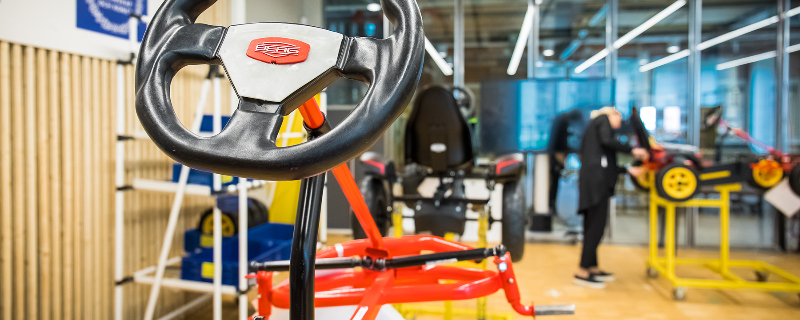The aim of the course is to give an overall picture of the concept Lean production. Lean production consists of a set principles and technologies which are included in the systems of the activities and processes. These can be derived to a special business philosophy and strategy that includes the activities of the whole organisation. The course places basis for continued broader and deeper studies of how the activities are carried out of companies with a Lean business strategy.
The course should introduce and base the basic principles of a Lean production. The Lean implies a refinement of industrial systems beyond the logic and principles of the mass production. The participant should receive knowledge that is to help to understand the logic in this business philosophy and strategy. Furthermore to in own activities be able to identify possibilities to eliminate activities that not are value raising decrease the lead times of activities, be able to react faster on new customer needs and to be able to use available resources more efficiently. The participant should have basic knowledge on completion of the course on:
- Strategies and principles of Lean production
- Design of value flows
- Drawing and pressing production system
- Stable processes and standardised working method
- Quality philosophy and quality methodology
- Motivation and team organisation
- The management system
- Transformation to a Lean company culture
The course is interactive, and large parts are based on flipped classroom pedagogy. The course consists of lectures, exercises and games, assignments and projects and other own study work. The teacher directed learning is distributed over 5 occasions à 2 days with about 4 weeks of disclosures. Between the occasions, compulsory literature studies and assignments are carried out. As education support is used in the course the course portal Canvas.
